The 'Meet' Series is my chance to interview anyone I would love to meet that is involved in African literature. This month is extra special as I have had the great pleasure of meeting two wonderful authors. Today, I bring the second author in my two-part special.
Back in March, I delved into the world of a crazed gynaecologist and a psychologist trying to bring him down. It was a terrifying novel, which still gives me chills whenever I think of it. Which is why I am so excited that in my extra special 'Meet' series, I have the pleasure of meeting Joanne Macgregor - the author behind the chilling psychological thriller, Dark Whispers. Enjoy!!!
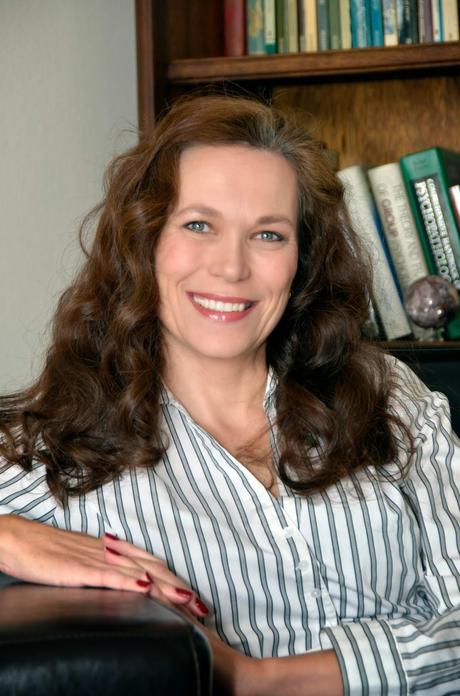
Thanks so much for having me on your fabulous blog!
Can you tell us a little bit about yourself (where you’re from, what you do, any fun details)? I’m a born and bred Joburger, deeply rooted in the frenetic adrenaline-rush of this amazing city. I have lived here among the Hadedahs and mine-dumps all my life. Johannesburg isn’t a beautiful city – though we do have fabulous trees – but there’s something about the vibe and the pace that’s exciting. Or maybe we all just have altitude sickness.
By profession, I’m a Counselling Psychologist in private practice, dealing primarily with adult victims of crime and trauma. It’s tough work and to combat creeping burnout, I started writing fiction several years ago. Now I consult and write on alternate days, and in completely different head- and physical spaces.
I started my professional life as a high school English Teacher, but at different times in my life I have also worked as an IT trainer, a waitress, a theater dogsbody, a management consultant and I once had a job handing out helium balloons in a shopping mall, while wearing a bathing suit and high heels!
What was the first piece you ever wrote? I had a poem published in our city’s newspaper at the age of 7 years and I’ve tinkered with writing ever since, but I started writing my first book – or trying to – about nine years ago. It was a biography of the sole survivor of the 2003 “Sizzlers Massacre” of nine men working in a Cape Town massage parlour. Although it was never published, I learned an enormous amount about writing and that gave me the confidence to begin writing books that have, thankfully, been published.
What draws you to writing? I think it’s that the work is so varied that even I can’t get bored. Each time there’s a rhythm to getting the idea, fleshing it out in pleasant daydreams, getting it down on paper, editing and rewriting, and these days, of course, marketing, but it’s never the same. Each new book is like a new baby, and you can’t quite be sure what it might become! Also, I have just always been in love with words, so becoming a wordsmith has felt like coming home.
What do you do when you are not writing? I work at my day job, mother my kids and read in every spare moment. I’m a pretty good cook, too, so you’ll likely find me in the kitchen instead of at parties :).
On Novels
You are a successful writer of YA novels in South Africa, so before I go into the questions I am dying to ask about your latest novel, Dark Whispers, could you tell us a bit about your ‘books for under 18s’?
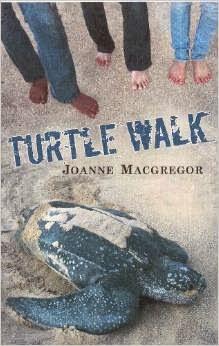 I have two books for younger
YA readers which have been published, and many more already in the pipeline. Turtle Walk and its sequel Rock Steady tell the story of three
girls at a high school in South Africa. In every book, they’re a year older and
in a higher grade, and in each they tackle some broadly ecological issue which
is a metaphor for their inner growth and development. In Turtle Walk it was illegal long-line fishing which decimates our
marine Leatherback Turtle population; in Rock
Steady it’s the illegal trade in San Rock Art. In the third of the series,
which I’m currently writing, the girls come face to face with fracking –
external and internal!
I have two books for younger
YA readers which have been published, and many more already in the pipeline. Turtle Walk and its sequel Rock Steady tell the story of three
girls at a high school in South Africa. In every book, they’re a year older and
in a higher grade, and in each they tackle some broadly ecological issue which
is a metaphor for their inner growth and development. In Turtle Walk it was illegal long-line fishing which decimates our
marine Leatherback Turtle population; in Rock
Steady it’s the illegal trade in San Rock Art. In the third of the series,
which I’m currently writing, the girls come face to face with fracking –
external and internal!
Of course, back at school, the eco-warriors have to deal with the usual teen issues – first love, parental pressure, really mean teachers, etc. Samantha, the main character, also suffers from anxiety and it’s been fun to explore that in the books. What was the inspiration behind the YA series? My inspiration for the series came from the books I saw on the YA bookshelves at book stores – almost exclusively written by foreign authors, set in Europe or the US, telling stories very often based in fantasy, with a preponderance of male protagonists and feeble girl sidekicks who served as loyal friends, victims to be rescued, or passive foils to the boy’s actions. With this series, I wanted to write realistic fiction (a break from wings and wands and fangs), telling South African stories set in our beautiful country, with smart, funny, resourceful, kick-ass heroines. In short, the kind of books I’d love my teen daughter and her friends to read.
While on your author website, I saw you wrote an academic paper on Harry Potter from a psychological perspective. I was obsessed with Harry Potter as a teenager (and still am, if I am being honest) and your paper was such a fascinating read. Your use of various psychological theories to explore the different characters – like Harry’s ability to trust, but also not trust wholly; Tom Riddle’s ‘suspicious, mistrusting nature’; Neville’s ‘self-doubt and feelings of inadequacy and inferiority’ at the early stages of their life; applying Freud’s Id-Ego-Superego to the triad of Ron-Harry-Hermione, as well as to Voldemont-Harry-Dumbledore and more – was really insightful, so thank you!
It must have been really fun to write, but what was the inspiration behind looking at the parallels between the characters in Harry Potter and psychological theories? It was enormous fun to write! At the time, I was a fanatical Potterhead (still am!) and I couldn’t help but bring my psychological perspective to analyzing the texts. I think it’s a legitimate approach – Rowling herself has said that her experience of depression was the inspiration for the dementors. When I saw the call for papers at the Phoenix Rising conference, I decided to organize my thoughts and write the paper. The conference in New Orleans was fantastic – all manner of professors, academics and experts in subjects ranging from genetics to feminism to sociology and, of course, literature. And all of us wandering about in wizard hats and expelliarmusing each other in the elevators!
Now onto Dark Whispers:
How would you describe your first adult novel Dark Whispers?
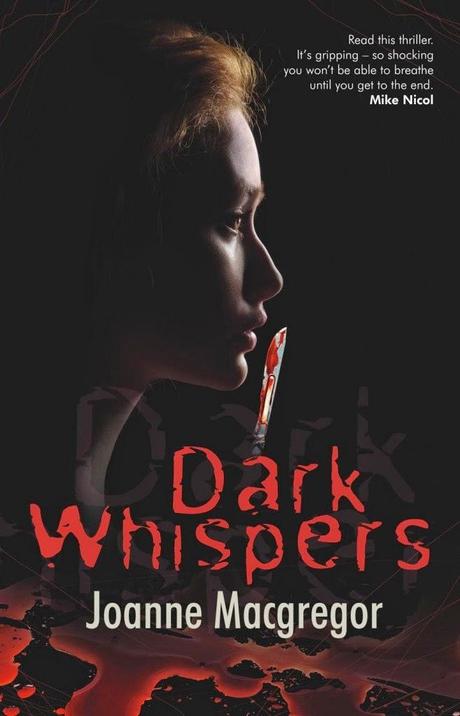 Unsettling and disturbing! Dark Whispers is a psychological
thriller set in contemporary South Africa. When
a patient describes an experience of mental torture and sexual mutilation by a
gynaecologist at the private hospital where she works, psychologist Megan
Wright decides to investigate. Determined to find out the truth and stop the
abuse, but bound to silence by the ethics of confidentiality, Megan must enter
the dark mind of a dangerously disturbed man.
Unsettling and disturbing! Dark Whispers is a psychological
thriller set in contemporary South Africa. When
a patient describes an experience of mental torture and sexual mutilation by a
gynaecologist at the private hospital where she works, psychologist Megan
Wright decides to investigate. Determined to find out the truth and stop the
abuse, but bound to silence by the ethics of confidentiality, Megan must enter
the dark mind of a dangerously disturbed man.
Having written YA novels, what inspired you to write your first adult novel? Following on from that, where did the idea to write a psychological thriller come from? I didn’t actually set out to try my hand at adult fiction. It was really the story idea that grabbed me and demanded to be explored, and then written. And quite clearly the subject matter was not appropriate for young readers, so that’s how I wound up writing a psychological thriller for adults.
The idea for the story was sparked by a news report on the “Butcher of Bega”, an Australian doctor who mistreated and sexually mutilated his patients, whispering a terrifying and sickening threat to one of them just as she was going under anaesthetic. He damaged hundreds of women before one stepped forward to tell how she had been tortured, after which the full truth emerged.
I started with the premise, but writers always bring themselves – their hopes, fears, experiences – to their stories. What, I asked myself, would I do if a client reported such an experience to me? What if she related it while in a state of hypnosis, and neither of us was sure it had actually happened? (Unlike what you’ve seen in the movies, hypnosis isn’t an objective “video recording” by the brain of everything that has ever happened to you.) What if the extraordinarily stringent ethics of my profession hampered my efforts to discover the truth and do something about it? And what if, all the while, this doctor was continuing to practice and wreak havoc on women’s lives and bodies? There, in the what-if labyrinth of my writer’s imagination, this rather sick and scary story grew.
Dark Whispers has two main characters - one is misogynistic, and let’s face it rather crazy, Dr. Trotteur - who has the urge to fix things. The other is Megan Wright, who has this desire to constantly save others.
What was it like writing both characters? And specifically with Dr. Trotteur, what was it like conjuring the horrific things he did? It was the first book I’d written told from two different perspectives and it was a satisfying challenge to write in two completely different “voices”. I think it really added to the depth and pacing of the book. Although the book is fiction, and not an account of the Oz doctor, some of his actions were inspired by details in the news accounts. But mostly, the horrific aspects came out of my imagination. Which is a bit worrying, really.
Dark Whispers not only delves into the physically traumatic experiences the women face from Dr. Trotteur’s urge to fix, but also the more human experiences after the fact - the impact on the women and their loved ones.
When I reviewed Dark Whispers, one thing I kept on wondering was if your background as a Counselling Psychologist, who works primarily with victims of trauma and crime, enabled you to write about the impact this has on victims/survivors and their loved ones in a realistic way? Yes, definitely. I can no longer read graphic violence in books – the sort of “torture porn” that puts you in an almost complicit ride-along with the evil serial killer as he mutilates and brutalizes – so Dark Whispers is not that kind of thriller. Rather, I wanted to show “the afterwards” – the psychological and emotional consequences that victims of trauma are left to deal with. That is an aspect which I believe is too often neglected in genre fiction – too often characters are bereaved, tortured, assaulted and experience all kinds of dramatic agonies, but are up and running and pretty much back to normal by the next chapter. Take from someone who listens to pain for a living: that’s not how it works in real life.
I did get a kick out of writing a psychologist who is not herself unhinged, callous, sexually predatory or unprofessional in any of the clichéd ways so popular in fiction and Hollywood tropes. She does her best, she cocks up, she tries harder, and inevitably she is changed by the weight of the pain and cruelty she hears and absorbs on a daily basis.
Of course, in more general ways, my training and experience shapes all of my writing. My characters are always informed by my knowledge of personality types, psychological traumas and psychopatholgy in general, but for this book in particular, I was able to give a realistic idea of what actually happens in therapy because of my day-job.
What was your favorite part to write and why? I loved writing the chapters from Trotteur’s point of view. The words and voice just poured out in a vivid and intense present tense. I revelled in the luxury of writing from such a deeply flawed and increasingly unstable character who, to his own mind, is vastly superior to the lesser beings that surround him. Actually, I was a little concerned at how easily his perspective came, and at how much I enjoyed writing him. Those scenes just flowed through and out of me, and I’ve had some family and friends giving me concerned, sideways glances after they’ve read the book!
On Publishing, Being an Author and African Literature
As an author, what’s the toughest criticism and best compliment you have received? One of my beta-readers, on reading the climactic chapter in one of my more recent manuscripts which I reveal all kinds of conspiracy elements and exciting secrets, told me she didn’t believe it and thought I had “jumped the shark”. Ouch. Happily, she liked the rewritten version.
My best compliments are when teens come up to me and tell me how much they loved my book, or that they read it several times. Or when parents tell me something like, “My kid hates reading, but she loved your book.” I live for those moments – they carry me through the lakes of rejection that inevitably come with being a writer! It’s hard to write a story, send it out into the world, and not know how the end-reader (as opposed to a reviewer) experienced it. Readers: never be afraid to reach out to an author and tell them how much you liked their book – we love it and we need it!
What draws you to writing YA novels and how do you find it compared to writing for adults?
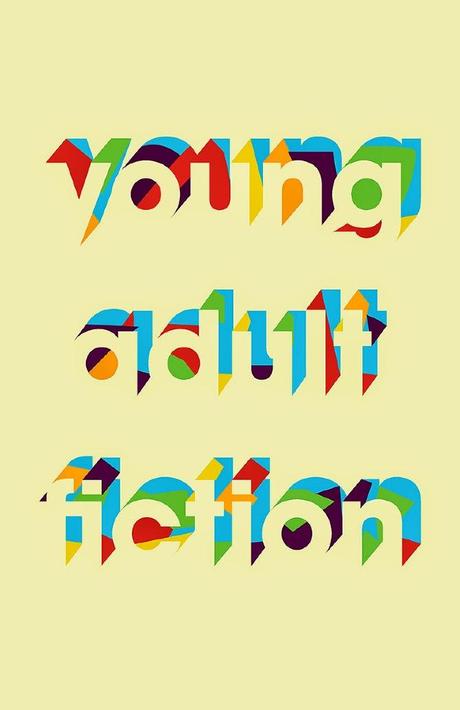 I write what I would like to read, and I love reading YA books. I don’t
think there were very many of them around when I grew up (we seemed to go from
Enid Blyton straight to Wilbur Smith), so maybe I’m indulging in a second
adolescence!
I write what I would like to read, and I love reading YA books. I don’t
think there were very many of them around when I grew up (we seemed to go from
Enid Blyton straight to Wilbur Smith), so maybe I’m indulging in a second
adolescence!
I really enjoy writing in the YA “voice”. There’s a lot to like about YA fiction as a writer. It’s very direct, raw, emotional and the story moves at a rapid pace. There’s not too much in the way of flowery, literary descriptions (the parts I usually skip in books) and there’s always room for writing with humour – which seems to be my style.
When I taught high school students, I loved their passion, their optimism, their determination to seek justice and fight causes and make a damn difference in the world. I want to write YA stories about these interesting individuals who have not yet had their sharp edges ground down to a mediocre and cynical smoothness by life experience in an imperfect world. I want to move my readers to outrage, to infatuation, to elation and to grief by the raw, almost pure, quality of my teen characters’ experience.
So although I don’t want to be locked into writing one genre only, I’m very comfortable in the YA zone.
Was it difficult making the transition from YA to adult novels? The transition was more one of genres than of age groups. Previously I had written school stories, adventure and romance. Dark Whispers was my first thriller and it called for much more complex plotting, foreshadowing, laying a trail of clues and planting red herrings. That was a real challenge and I learned so much in the process.
I did enjoy the freedoms that come with writing for adults, such as being able to use more advanced vocabulary or the odd swear-word, allowing the characters can have sex, and exploring some dark and existential themes. Not that these aspects can’t happen in YA, but they hadn’t happened in mine.
It’s a misconception that Young Adult novels are quick and easy to write. Good fiction, whether for teens or adults, requires clever plotting, complex characterisation and intriguing conflict. So, for me at least, it was a step sideways rather than a step up.
I am a great lover of African literature, could you suggest a book, new or old, that people should read?
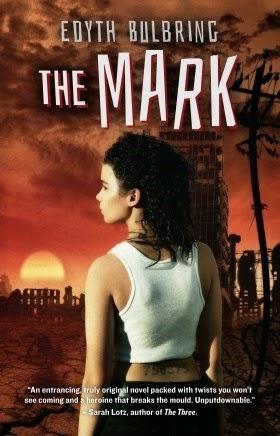 A great new YA book by South
African writer Edyth Bulbring is “The Mark”. It’s a truly original, twisty dystopian.
For adult books, I’d recommend the crime novels by Mike Nicol whose stories are
of a nation in moral flux, at war with
itself and its history. He writes in a lean, gritty style, with a superb ear
for dialog and idiom, and a refreshing disregard for the old conventions of
grammar rule books.
A great new YA book by South
African writer Edyth Bulbring is “The Mark”. It’s a truly original, twisty dystopian.
For adult books, I’d recommend the crime novels by Mike Nicol whose stories are
of a nation in moral flux, at war with
itself and its history. He writes in a lean, gritty style, with a superb ear
for dialog and idiom, and a refreshing disregard for the old conventions of
grammar rule books.
On Being a Booklover (Questions I’ve always wanted to ask authors)
What are you reading right now? The Night Circus by Erin Morgenstern. And I’m really looking forward to the January release of Dead of Winter – the third in Kresley Cole’s YA Arcana Chronicles that began with the wonderful Poison Princess. The to-be-read pile next to my bed is threatening to reach the ceiling, though, so I’ll have to pick up my reading pace.
Is there any particular author (living or dead) or book that influenced you in any way either growing up or as an adult - and why? Everything I’ve ever read has influenced me in some way. Books have been my most constant companion throughout my life.
Although I only came to the Harry Potter books as an adult, reading them was pivotal to me because the penny dropped that I, like the other Jo (Rowling), could come to writing at a later stage in life and have great stories to tell. So she inspired me to try. Reading and rereading those books umpteen times also taught me so much about the craft of writing.
Which, novel or character in a novel do you wish you had written? I would love to have written East of Eden (John Steinbeck). The story is gripping, with such deep, archetypal themes told with humanity and compassion, and the writing is simply incandescent.
Have you ever judged a book by its cover (i.e. bought a book based on its looks)? Which? I don’t think so. I rely on blurbs, recommendations and reviews by people I trust – that’s why book bloggers are so important. I think a bad cover puts me off, but I don’t know that a good cover has ever made me buy.
Hard copy or e-book? Neither! My preference is for audiobooks, which allow me to read while I drive, wait in lines,
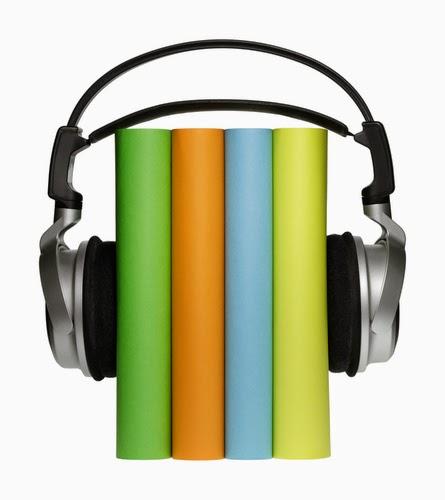 shop and
do boring chores. Second best would be a hard copy. I dislike ebooks
enormously, but I sometimes resort to getting a book on my Kindle when it’s not
available over here.
shop and
do boring chores. Second best would be a hard copy. I dislike ebooks
enormously, but I sometimes resort to getting a book on my Kindle when it’s not
available over here.Bookstore or Amazon? Bookstores! Amazon is amazing, but shipping costs make it prohibitive to buy hard copies from them and have them sent to South Africa. And ebooks – meh. Also, I like to support the little guy where possible.
Final question (I promise)
What’s next – can we expect a new book soon? I’ve written several books since I finished Dark Whispers. I just got the first draft of the third book in my Turtle Walk series done in November’s NaNoWriMo challenge, and I’m two books into a YA dystopian trilogy. I have a lovely YA romance bubbling in my brain and I’m looking forward to beginning that in January. So watch this space!

